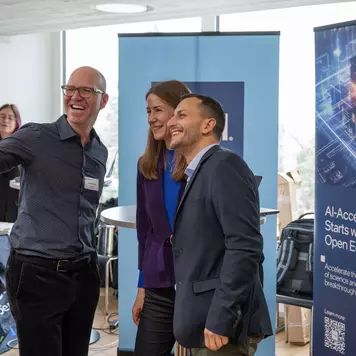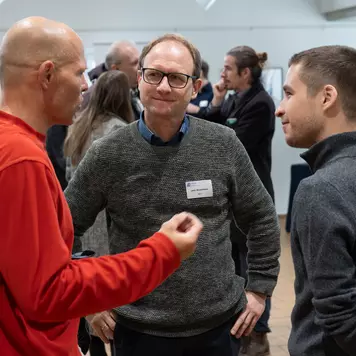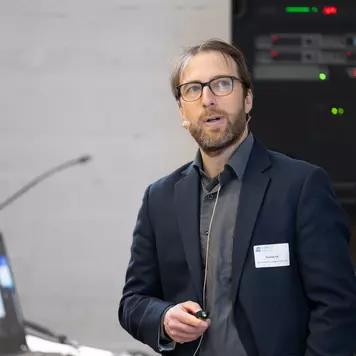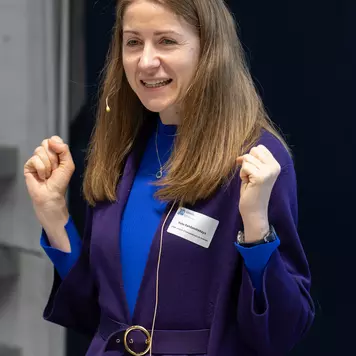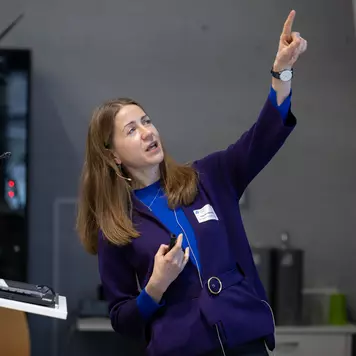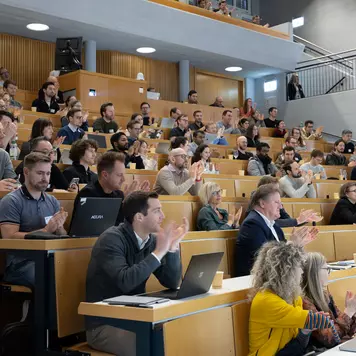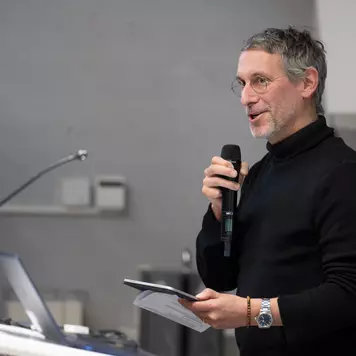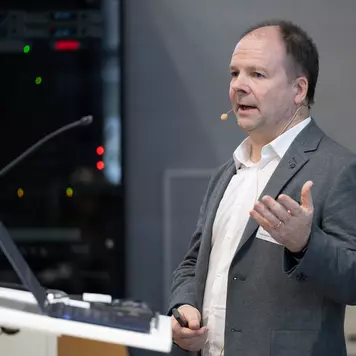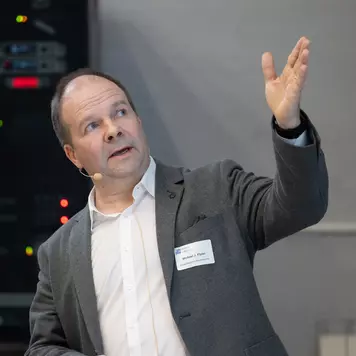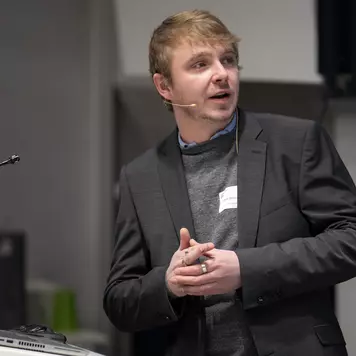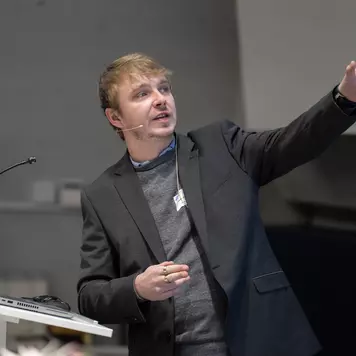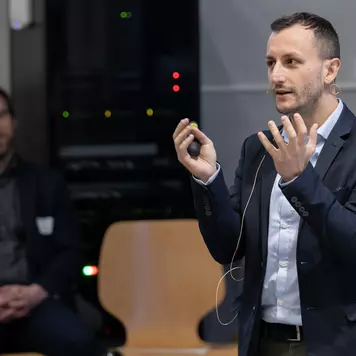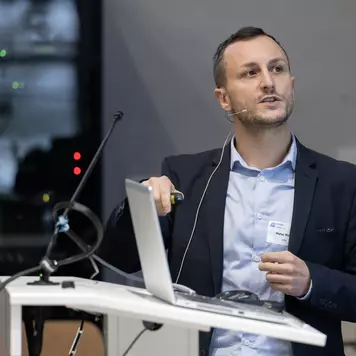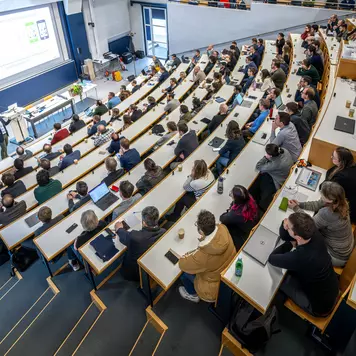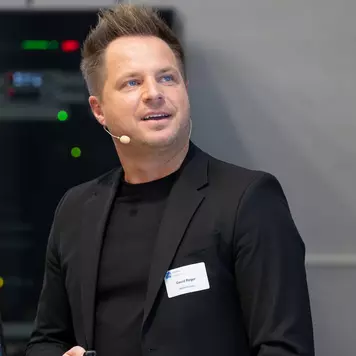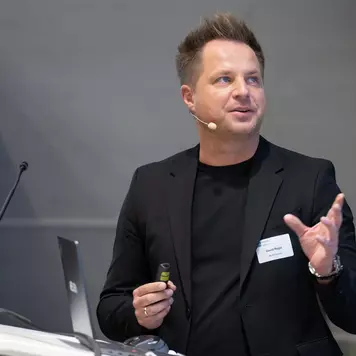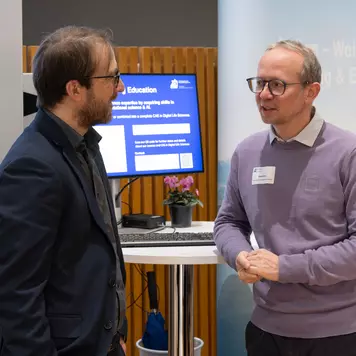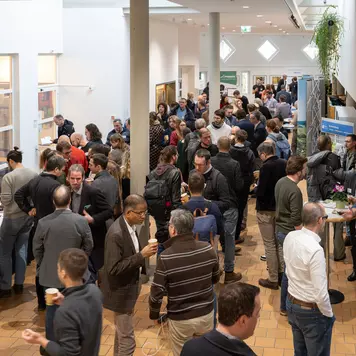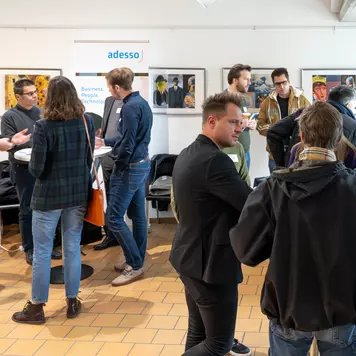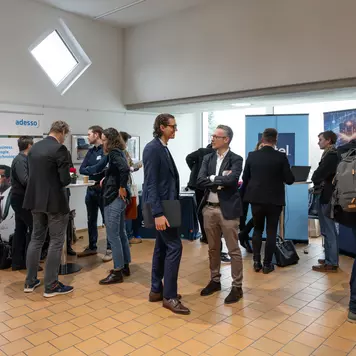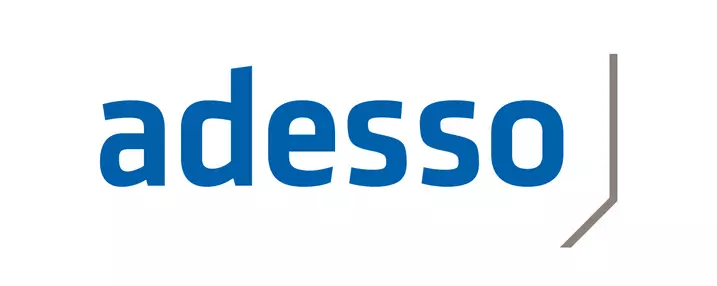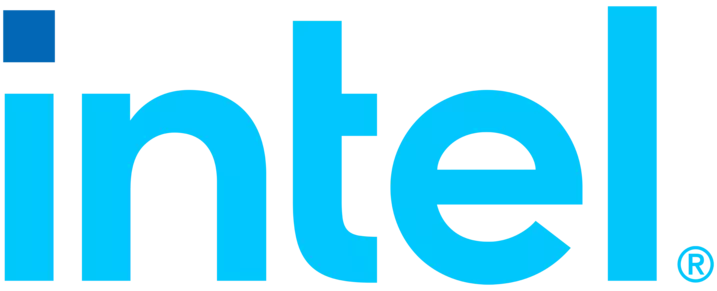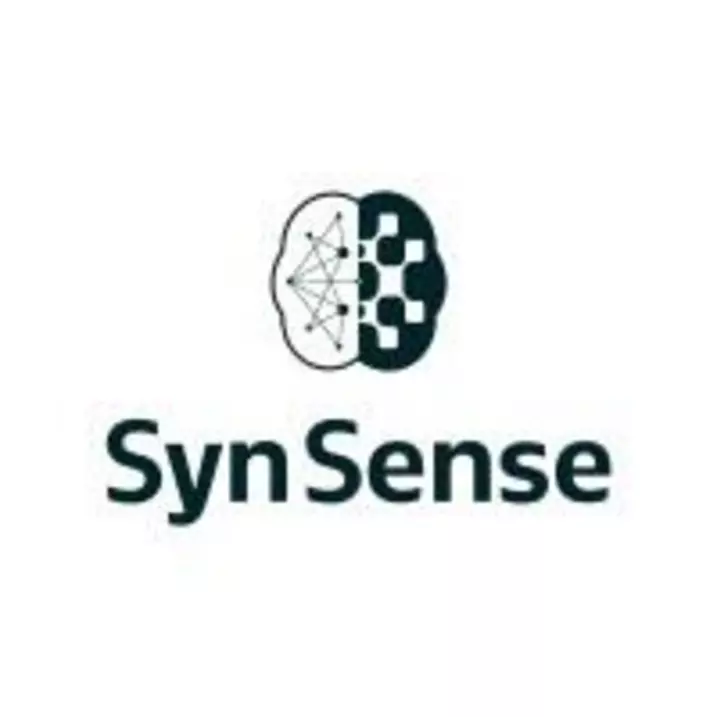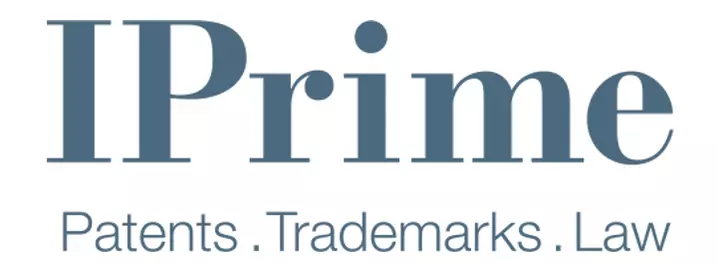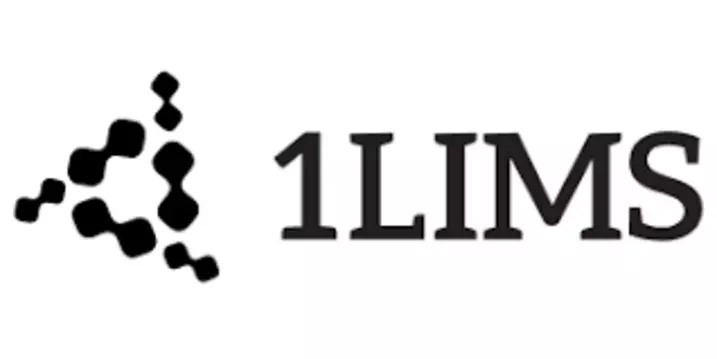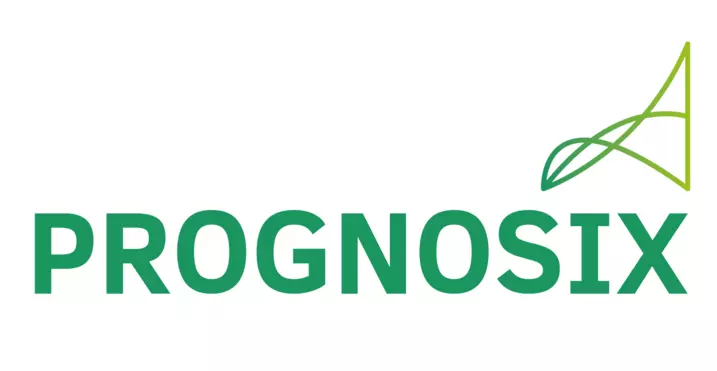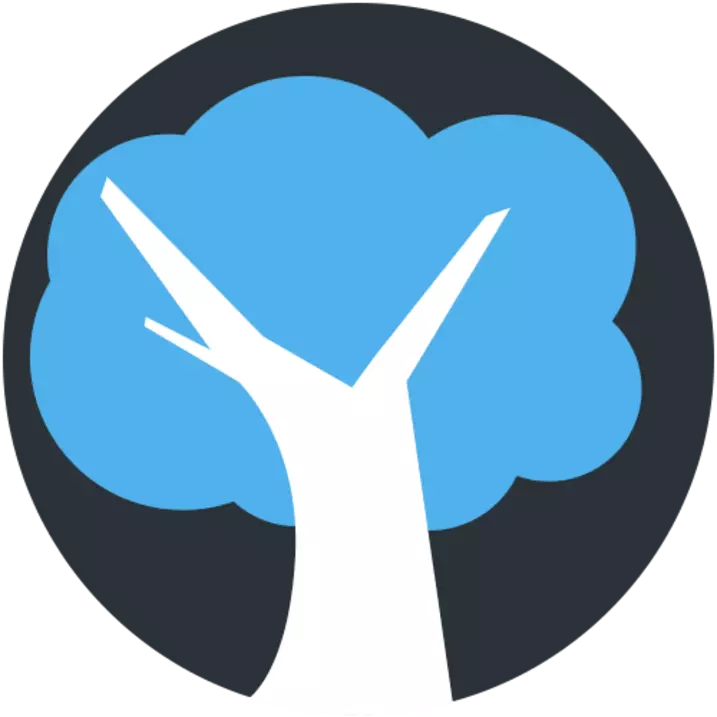ICLS - Computational Life Sciences Day
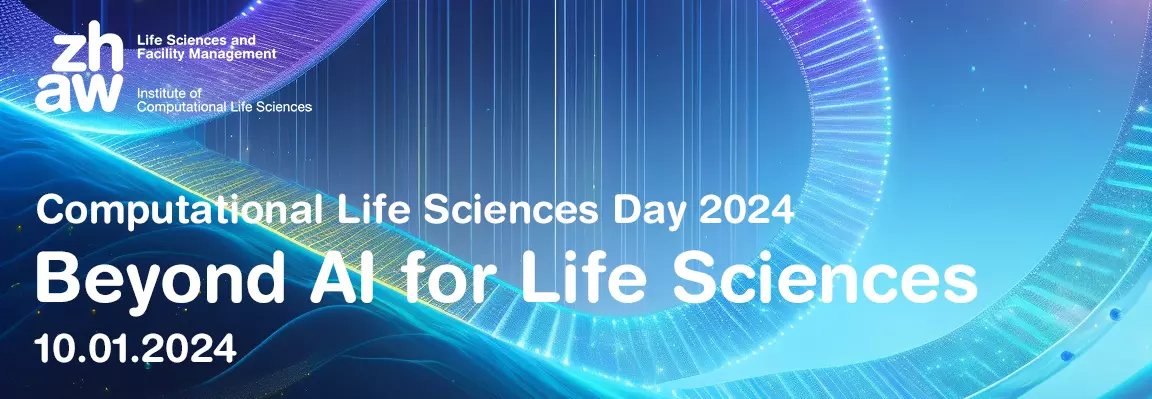
Rückblick CLS Day 2024 "Beyond AI for Life Sciences"
Der CLS Day 2024 brachte über 170 führende Expert:innen aus den Disziplinen der künstlichen Intelligenz und der Life Sciences zusammen, um die neuesten Entwicklungen und Anwendungen zu diskutieren. Die Teilnehmenden erfuhren, wie KI die Welt der gesamten Life Sciences umgestaltet und Bereiche wie Gesundheit, Agrar- und Ernährungswirtschaft sowie Umwelt verändert. Es wurde präsentiert, wie mit Big Data und Smart Modeling neue Möglichkeiten erschaffen und die Forschung sowie Industrie revolutioniert werden. Gemeinsam haben wir einen Blick über den Tellerrand geworfen und Entwicklungen abseits des heutigen Wissensstandes entdeckt.
Es gab spannende Keynote-Präsentationen, interaktive Podiumsdiskussionen sowie Networking-Möglichkeiten mit renommierten Wissenschaftler:innen, Industrievertreter:innen und Fachpersonen aus verwandten Bereichen.
Wir bedanken uns bei allen Teilnehmenden für den inspirierenden Austausch!
Programm
| Time | Agenda |
|---|---|
| 12:00 - 12:40 | Opening Marketplace |
| 12:40 - 12:50 |
Introduction and Welcome Prof. Dr. Thomas Ott, Director of Institute ICLS |
| 12:50 - 13:20 |
Keynote Dr. Yulia Sandamirskaya, Head of Centre for Cognitive Computing «New frontiers for intelligent computing: why big data is not enough.» |
| 13:20 - 14:30 |
Company Compact Talks Roche Speaker: Michael J. Flynn, Programme Lead Digital Ecosystems «Connected insights for better care» adesso Speaker: Leon Stolpmann, Quantum Computing Lead «Quantum Machine Learning» INTEL Speaker: Walter Riviera, AI Technical Lead EMEA «Federated Learning: Data for AI in the age of Data regulations» NEURA Robotics Speaker: David Reger, CEO |
| 14:30 - 15:15 | Coffee Break and Marketplace |
| 15:15 - 15:20 | Music (House Band) |
| 15:20 - 16:00 |
ACLS Alumni Success Stories & PhD Pitches Milena Brennwald, ACLS Graduate and Business Solution Designer, Allianz Suisse Eric Gericke, ACLS Graduate and Research Assistant, Research Group for Computational Environment ICLS David Graber, ACLS Graduate and PhD student, Research Group for Autonomous Learning Systems ICLS Dominik Graf, ACLS Graduate and Data Scientist, Bruker BioSpin Fabio Musio, PhD student, Centre for Computational Health ICLS Lirui Zang, ACLS Graduate and Data Solution Engineer, USZ |
| 16:00 - 17:10 |
ICLS Research Centres Compact Talks Centre for Computational Health Speakers: Dr. Samuel Wehrli, Research Group Leader Biosignal Analysis & Digital Health, ICLS Prof. Dr. Reto Huber, Research Group Leader Elektrophysiology and Sleep, Kispi ZH «Sleep and Health» Centre for Bioinformatics Speakers: Dr. Ahmad Aghaebrahimian, Research Associate Biomedical String Analysis, ICLS Dr. Jan Bartussek, Head of Research Group Applied Clinical Data Science, DeepMed, USZ «Empowering Healthcare via Marrying NLP and the Semantic Web» Centre for Digital Labs and Production Speaker: Dr. Lukas Hollenstein, Co-Lead Centre for Digital Labs and Production, ICLS «Digital Twins in Life Sciences» Centre for Cognitive Computing Speakers: Yulia Sandamirskaya, Head of Centre for Cognitive Computing, ICLS Jens Struckmeier, Co-Founder & CTO WAIYS Sadique Sheik, VP of AI SynSense |
| 17:10 - 17:20 | Concluding Remarks & Music |
| 17:20 | Apéro and Marketplace |
